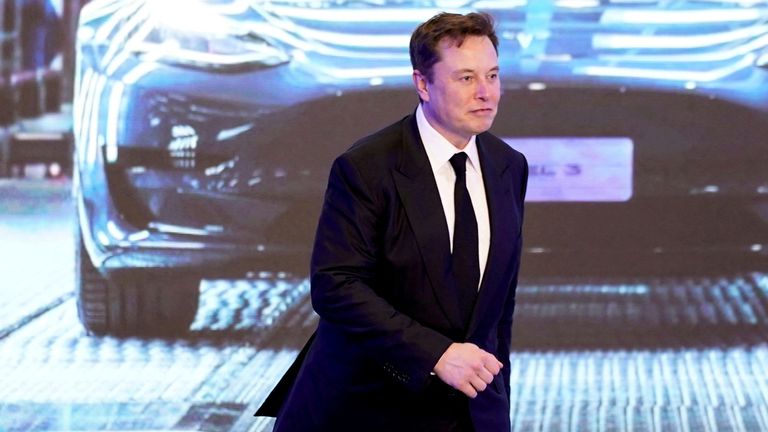Tesla CEO Elon Musk is under scrutiny following accusations that he sold $7.5 billion worth of Tesla stock shortly before the release of underwhelming sales data. The announcement of the poor sales results caused Tesla’s share price to plunge to a two-year low, sparking controversy and calls for an investigation.
The allegations suggest that Musk, who holds significant stakes in Tesla, may have sold a large portion of his shares in anticipation of the negative sales report. This move raises questions about potential insider trading and ethical conduct, as it appears he might have used non-public information for personal financial gain.
The controversy began when Tesla’s quarterly sales data, released last week, showed figures far below market expectations. Following the announcement, Tesla’s stock plummeted, wiping out billions in market value and reaching its lowest level in two years. Analysts and investors were shocked by the extent of the decline, considering the company’s previous growth and market dominance.

Shortly after the stock drop, financial disclosures revealed that Musk had sold approximately $7.5 billion worth of Tesla shares just days before the sales figures were made public. This timing has led to widespread speculation and accusations that Musk acted on insider information to avoid potential losses.
These allegations have prompted calls for an investigation by regulatory authorities, including the Securities and Exchange Commission (SEC). Insider trading laws prohibit company executives from trading based on material, non-public information, and if found guilty, Musk could face severe penalties, including fines and potential restrictions on his trading activities.
A spokesperson for the SEC stated, “We are aware of the allegations and are reviewing the circumstances surrounding the sale of Tesla shares by Mr. Musk. Protecting market integrity and ensuring a level playing field for all investors is of utmost importance.”
Elon Musk, known for his candid and often controversial remarks, took to social media to address the accusations. In a series of tweets, he denied any wrongdoing, claiming that the timing of his stock sale was purely coincidental and part of a pre-scheduled trading plan designed to provide liquidity for personal obligations and upcoming projects.
Musk tweeted, “I have always followed the rules and would never sell stock based on insider information. This is nothing but an attempt to tarnish my reputation and Tesla’s success.”

The news of Musk’s stock sale and the subsequent accusations have caused significant concern among investors. Tesla’s stock continues to experience volatility, with shareholders worried about the potential consequences of the investigation and its impact on the company’s leadership and future performance.
Several large institutional investors have called for greater transparency and stricter governance measures within Tesla to prevent similar incidents in the future. There is also renewed scrutiny on the influence of high-profile CEOs like Musk on stock market dynamics and the potential risks posed to everyday investors.
As the investigation into Elon Musk’s stock sale continues, the implications for Tesla and its leadership remain uncertain. The allegations of insider trading have cast a shadow over one of the world’s most prominent tech entrepreneurs and could lead to significant legal and financial consequences.
The case underscores the importance of rigorous regulatory oversight and the need for corporate leaders to adhere to ethical standards to maintain investor trust and market stability. Tesla’s response to this controversy and the actions taken by regulatory authorities will be closely watched by the financial world in the coming weeks.












